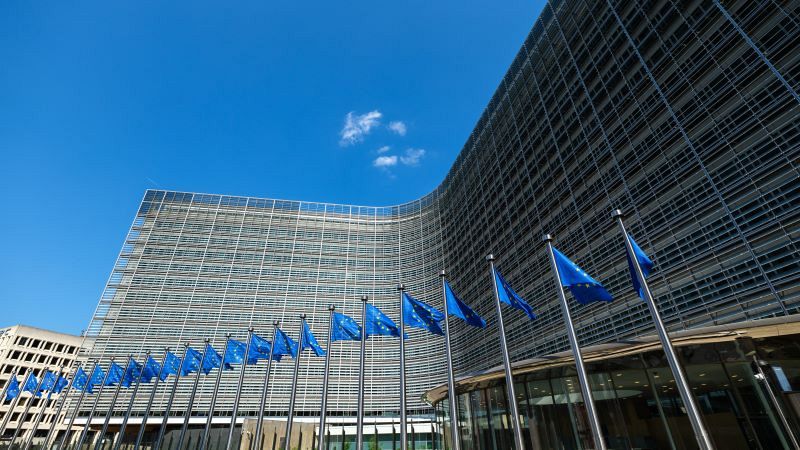EU Takes Aim in Battle Against NGO Accusations

On Saturday, the European Commission refuted claims from German media outlets alleging that it had entered into “confidential agreements” with environmental non-governmental organizations to advance the union’s climate policies.
“Despite media claims, no covert agreements exist between the European Commission and non-governmental organizations,” stated a representative from the commission to Euronews. “When it comes to offering financial support to NGOs, the Commission maintains a strong commitment to openness.”
The rejection from the commission follows an assertion made by the German newspaper Welt Am Sonntag, which reported that the European Union’s executive branch supposedly provided undisclosed financial support of up to €700,000 to environmental non-governmental organizations with the aim of promoting the union’s climate policies.
The document claimed it obtained "confidential agreements" from 2022, which included prominent NGOs such as “ClientEarth,” and ”Friends of the Earth.”
According to claims made in the Welt Am Sonntag, the ex-official supposedly "received €350,000" with the intention of "getting German coal-powered plants tangled up in lawsuits aimed at escalating the financial and legal risks for their operators," as reported by the newspaper.
In a statement, the Head of ClientEarth’s German office, Dr. Christiane Gerstetter, explained that the funds are being utilized “to partly cover staffing and operational expenses at their German branch.” She also mentioned, “None of the LIFE grant money is allocated towards financing external legal battles.”
The report stated that the EC officials asked them to oppose the Mercosur free trade deal between Europe and South America — even as their coworkers within the same organization were advocating for it simultaneously, according to the paper.
On Saturday, when addressing Euronews, the European Commission emphasized that "Non-governmental organizations (NGOs) have a vital function in formulating, overseeing, and implementing laws. Additionally, these NGOs maintain complete independence and are at liberty to develop their perspectives on every political issue."
'Unsuitable' financing acknowledged within the LIFE program back in January
The German report emerges as the topic of NGO financing has turned into a highly contentious political matter in Brussels. The conservative European People’s Party (EPP) asserts that the Commission directed NGOs to advocate for Members of Parliament to support particular policies under the Green Deal, which was a key part of President Ursula von der Leyen’s legislative program from 2019 to 2024.
MEP Monika Hohlmeier (Germany/EPP) informed Euronews earlier this year that she became concerned after reviewing approximately 30 financing agreements from 2022 and 2023, which was part of the Parliament's routine examination of expenditures related to the EU budget.
In January, Budget Commissioner Piotr Serafin acknowledged that certain funding from the EU’s €5.4 billion environmental initiative LIFE might not have been appropriate. "It must be admitted that it was improper for some departments within the Commission to engage in accords compelling non-governmental organizations (NGOs) to lobby specific Members of the European Parliament," he stated. However, he also upheld the importance of NGOs in shaping EU policies.
In April, the European Court of Auditors (ECA) completed an extensive investigation which determined that the Commission’s financing of non-governmental organizations (NGOs) was "not transparent" and posed a potential "risk to reputation." However, the court did not identify any violations of EU principles concerning these NGOs.
Additional steps set to ensure openness and clarity
To address uncertainties, the European Commission released explicit guidelines last year aimed at simplifying the process of providing funds to NGOs.
On Saturday, the commission spokesperson informed Euronews that EU funds were allocated to NGOs through "grant agreements, supplemented by work programs where the preparation responsibilities lie with these organizations."
"As stated in the guidelines, the Commission has told its teams not to approve work programs that include excessively detailed actions targeted at EU bodies or their officials," the EC statement noted.
The organization will implement "additional steps," according to the spokesperson, to enhance transparency and incorporate suitable safety measures.
"We have been collaborating intensively with the European Parliament and the European Court of Auditors to enhance this transparency even more. Details about beneficiaries of EU funds, such as their names and the sums received, can be found on the Commission’s Financial Transparency System webpage," the statement read.
Post a Comment for "EU Takes Aim in Battle Against NGO Accusations"